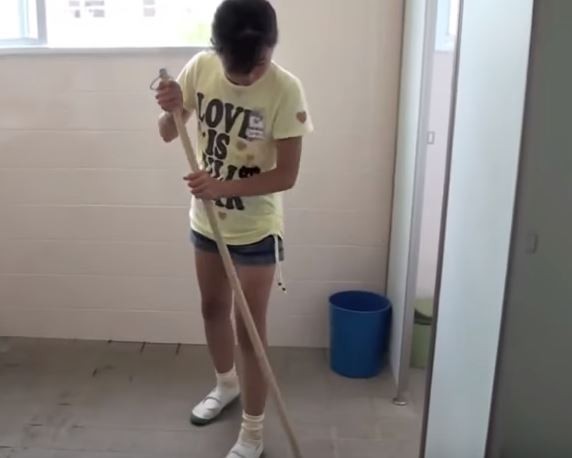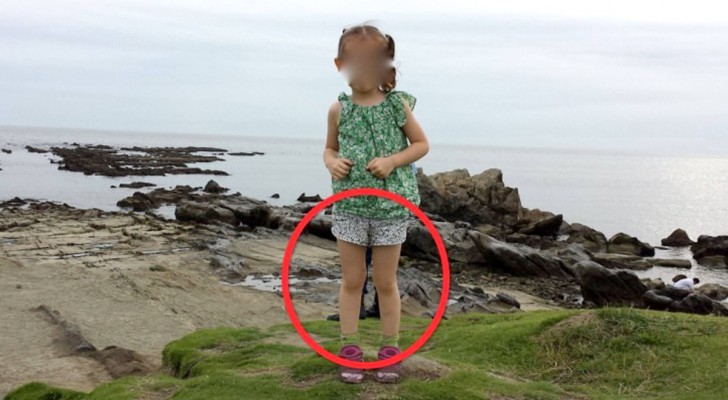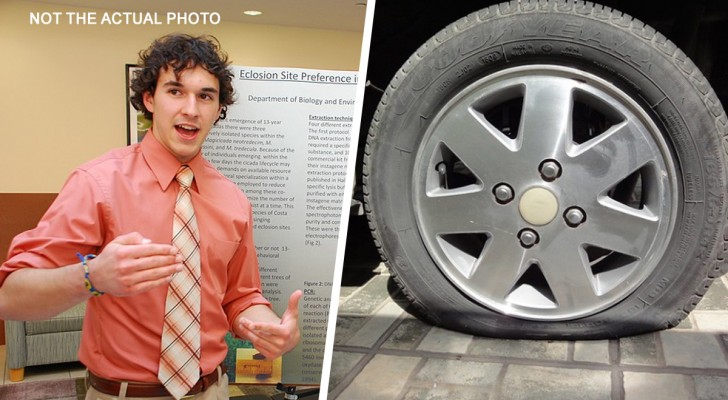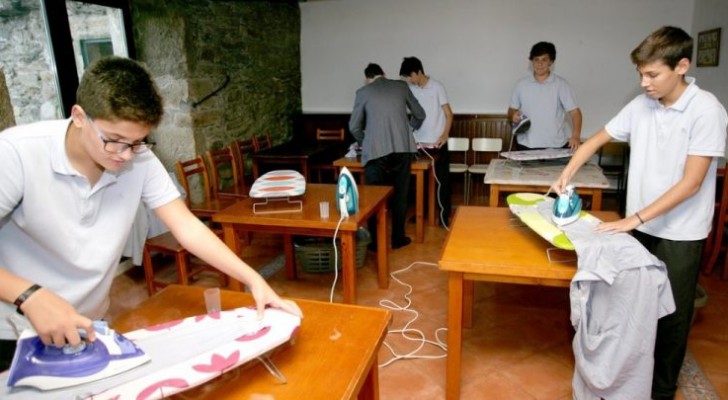In Japan, students clean their classrooms and school toilets; this is how they learn responsibility from an early age
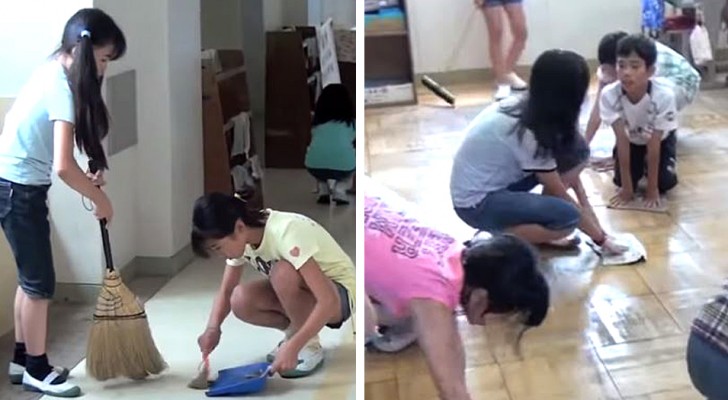
Learn to take care of what belongs to everyone as if it were your own personal property and consequently—not behave disrespectfully in "public" situations or when using public structures and facilities.
With these intentions, in Japan, efforts are traditionally made to help educate young people to grow up to be citizens who are aware and responsible.
In fact, in addition to teaching routine scholastic subjects, the school system should also do something just as important, namely, to transmit positive values on an individual and personal level, such as respect, responsibility, and equality.
Accordingly, in Japanese institutions, from early childhood, students are assigned responsibilities that go far beyond simple studying. In fact, they are also taught to perform more practical tasks, such as cleaning their classrooms and school toilets.
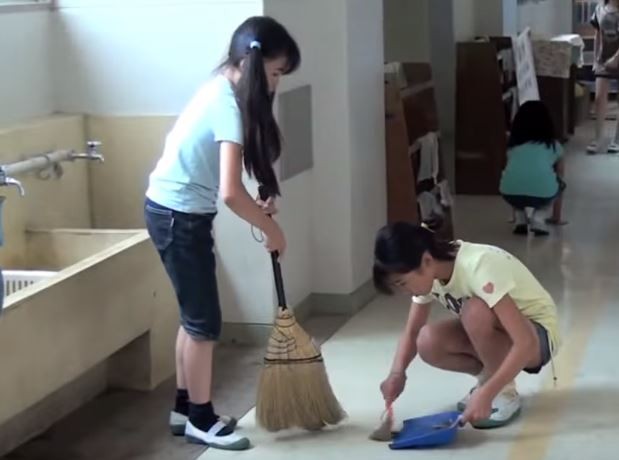
According to the traditional practice of Gakko Soji (school cleansing), every day a group of students is chosen to carry out tasks that, only at first glance seem to not be an integral part of the scholastic program.
In fact, all students participate in these daily tasks—from carrying lunch to the classrooms and serving the food to fellow students, from maintaining tidiness and cleanliness in the school areas where the students study to cleaning the toilets—everyone is responsible and willingly do their share.
That's right! In Japan aka "The Land of the Rising Sun", students learn from an early age to take care of the environments where they study and learn as if they were in their own homes.
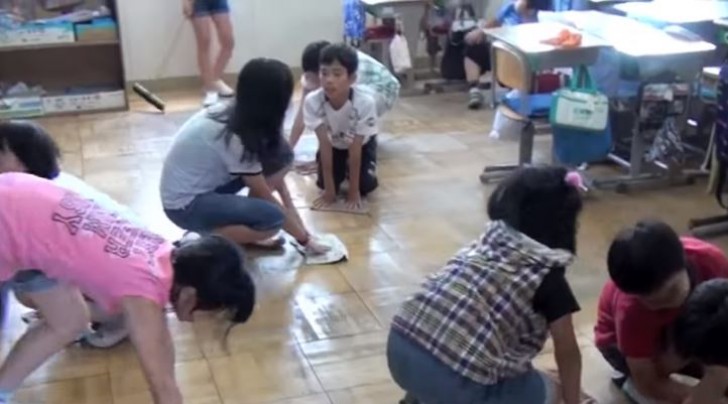
Moreover, this activity is not considered to be "work" at all, nor is it a form of "child abuse" where the students are forced to perform these tasks. Actually, the kids have fun and in Japan, it is completely normal!
This is because the educational system is aimed at a child's complete personal growth that can be achieved by also including activities considered "humble" but that are practical and necessary in life.
On the other hand, it is also through such practical activities that one learns from an early age to take personal responsibility for the practical aspects of one's life, just as one is expected to do regarding one's studies.
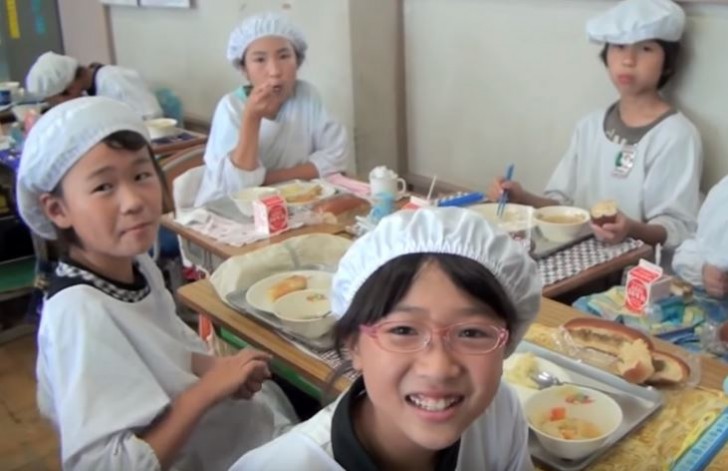
All this, of course, is reflected in the tidiness, cleanliness, and care that, evidently, characterizes most of Japan's public contexts, from schools to the streets.
Personal responsibility and proper behavior are also manifested in many other situations in which it is these same Japanese citizens, who themselves contribute to keeping that which belongs to everyone in optimal condition.
Perhaps, it would not be a bad idea, at this point, to bring some Gakko Soji to other educational systems in the world, in order to raise more aware, educated, and responsible adults.
